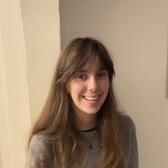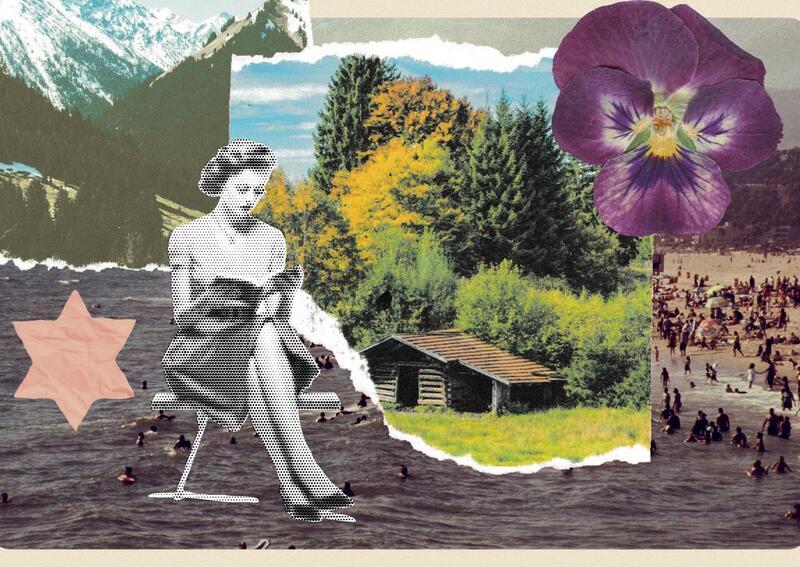Lessons from "Miss Rumphius"
I graduated high school this past June—a milestone accompanied by broad changes and many, many inquiries about my identity, my interests, and (invariably) my “plans for the future.”
This question-filled time has encouraged me to reflect on the factors that have shaped my current values and aspirations. One especially formative factor, I’ve concluded, was my childhood exploration of books. Jumping from story to story (two or three at a time), I imagined myself transported into worlds past and future, diverse and distant.
I now look back upon these literary worlds with fondness. I’m repeatedly drawn to one in particular: the picture-book story of Miss Rumphius. This story was written and illustrated by Barbara Cooney and follows the life of Miss Alice Rumphius, “The Lupine Lady.” As a child, Alice harbored dreams of visiting faraway countries, growing old by the sea, and making “the world more beautiful.” She eventually fulfills all these aspirations. She visits snowy mountains, jungles, and deserts. She settles in a saltbox house overlooking the ocean. Finally, to make the world more beautiful, she blankets her community in vibrant purple flowers, and encourages her lineage to follow suit.
I first read this picture book when I was around six years old. Twelve years later, the story still resonates with me. I particularly connect with Alice’s desire to explore, specifically in the context of my experience with Judaism.
When Alice was young, her grandfather regaled her with stories of exotic places across the sea in his waterfront home, and she longed to visit these places on her own. She hoped to develop her own understanding of the world and create her own story-filled home by the sea.
I’ve grown up in a kosher household, regularly attended synagogue, and had a bat mitzvah. I’ve never wavered in my identity as a Jew. However, I’ve often felt like I was sitting in someone else’s Jewish community and hearing someone else’s stories of what Judaism should feel like “from across the sea.” Like Alice, I’ve always hoped to explore faraway places myself—new Jewish contexts—so that I could find my own community.
Just as Miss Rumphius pursues her aspirations, I’ve started to venture into new Jewish contexts through writing. The most notable mode of exploration has been through this Rising Voices Fellowship. This program has offered me a Jewish community different from any other that I’ve ever experienced. I’ve had the opportunity to learn from (and alongside) other Jews from all over the country, and to explore entirely new aspects of Judaism. In order to continue Jewish learning and community building next year, I made sure the colleges I applied to (and the one I eventually chose) had large Jewish populations. These two modes of exploration—both facilitated by writing—are just the beginning of me creating a Jewish community and experience that feels truly like my own. Through writing, I’ve started building the foundation for my own Jewish house by the sea.
These ventures have been encouraged and supported by other Jewish women, which brings me to another element of Miss Rumphius worth considering: the book’s narration. The author chooses to have another woman (Miss Rumphius’ great-niece) tell the story. This narrator shares that Miss Rumphius imparts to her the importance of leading a life that makes “the world more beautiful.” This literary device gives the story a beautiful, circular essence. It reminds me of my mother, my mentors at my synagogue, and the many Jewish women that have instilled in me the importance of seeking a strong, comfortable Jewish community. This device also reflects the role women have historically played in the preservation and transmission of values and intangible cultural heritage.
Like Alice, I aspire to visit faraway places and create my own home by the sea. I hope not only to visit Jewish communities and traditions thousands of miles away, but also to delve into unknown aspects of the Jewish people and places that constantly surround me. I hope not only for a house with gray cedar shingles and proximity to the ocean, but for a life sweetened by strong communities, adorned with joyous stories, and founded in discovery and tikkun olam. These hopes often feel idealistic and childish. Miss Rumphius, however, shows that a life based on wonder, joy, discovery, and serving the world is natural, purposeful, and entirely feasible.
As I move 800 miles from home for university in just a few months, I’ll take with me the lessons of the Lupine Lady to find an enduring, comfortable Jewish community.
This piece was written as part of JWA’s Rising Voices Fellowship.








Beautifully written, heartfelt and profound. Please continue to share your journey.
I anxiously await your next chapter.